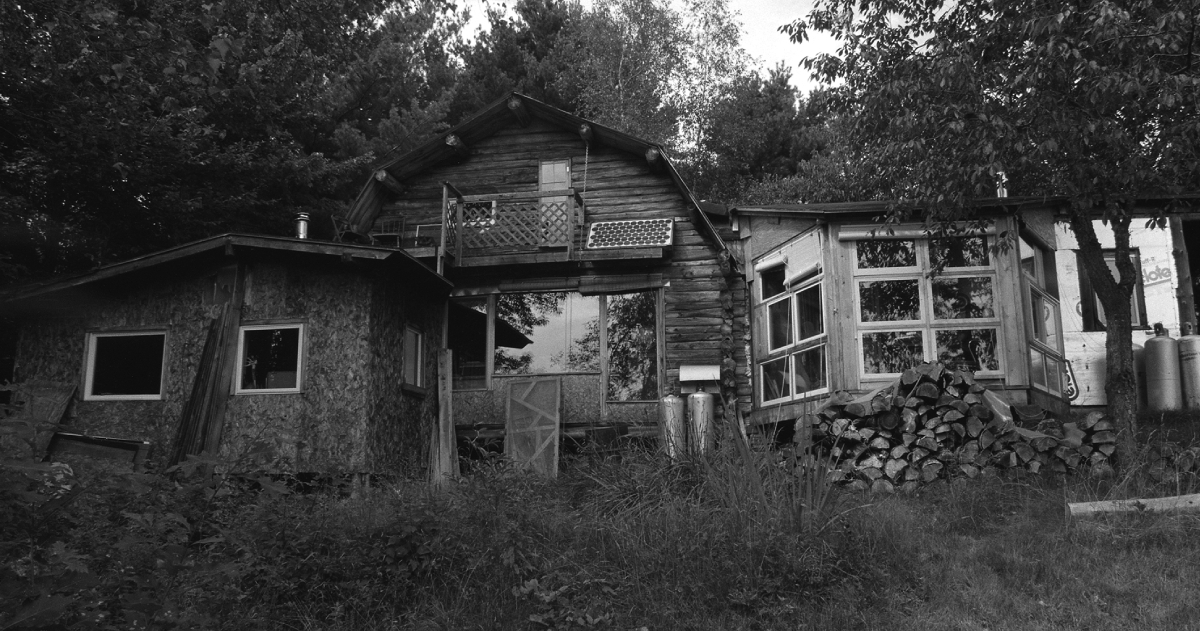At the intersection of art and research, photography professor Keliy Anderson-Staley walks a fine line between preserving archives and transforming them into new objects that tell alternate versions of her family’s story.
When she first discovered photography just four semesters into college, Anderson-Staley was surprised that the medium “shared aspects with painting and collage and even sculpture. It was the vast potential in it that excited me.” That initial affinity for photography has imbued her with a passion for telling stories, teaching students at UH and, now, serving as a Guggenheim Fellow for 2022 – an honor for the city of Houston, the University and Anderson-Staley, herself.
A recent presentation at the Anne Wilkes Tucker Photography Center at the Museum of Fine Arts, Houston, showcased her latest work, and the Art Museum of Southeast Texas, Beaumont is featuring a solo exhibit by Anderson-Staley, which includes a tintype house made up of intimate portraits of Texans, post-Hurricane Harvey.
While her work now encompasses larger cultural and historical narratives, she originally was drawn to photography as a means of telling the story of her unconventional childhood. When she was only two years old, her family moved from the Boston area to a rustic cabin in the woods of Maine. There was no electricity and no running water. There was no telephone line either, until one night she was caught in a snowstorm and couldn’t make it home. “There was no way to reach my parents. They realized then they would need to put in a phone line, which the phone company did by nailing a wire to the trees up the mile-long dirt trail to the cabin.”
Anderson-Staley’s research involves experimenting with disparate processes—silkscreen, photocopy, inkjet, silver gelatin and tintype photography. Some of her works are a collection of cyanotypes or “sun prints” – which is one of the earliest forms of photography.
Her current project, called “Raw Materials in Peace and War,” is composed of paper quilts, paper-based installations and hand-made bound books. Named after a book her grandfather wrote by the same title, this body of work allows her to explore how private and public lives intersect and how images and documents define those connections, our stories and who we are.
A Stanford economist who wrote about the impacts of raw materials on global politics, especially in regard to modernizing Vietnam, her grandfather had a complicated relationship with his son, Anderson-Staley’s father, a pacifist who left the country while protesting the Vietnam War. “My grandfather was very much part of the mid-century academic culture — writing and publishing books, attending conferences and advising politicians.”
Research into her family’s past has led her down several paths, one following her grandfather’s scholarship and another exploring her father’s meticulous diaries. In contrast to her grandfather, Anderson-Staley’s father was a Henry David Thoreau-esque figure who lived with his wife and three children in the cabin he built himself. Having dropped out of Harvard, her father never could forgive his own father for his political writings. Anderson-Staley’s father remained an earnest and lifelong learner whose singular preoccupation at any given time would change from studying and writing about “Kant to Hindu iconography to neolithic tools.” The best part of the Guggenheim, she said, is the time it will free up so that she can devote attention fully to her creative research. “There is nothing more valuable to an artist than studio time,” — a sentiment her father would most likely echo.
Many of her newest works are personal, idiosyncratic and handmade books. “My books also don’t claim to present any specific truth. Each is another telling, or a different telling. I am interested in undoing the idea of a single narrative line and a single academic tradition. My work is interested in process — in how we make things, how we remember and how our memories and perspectives on the narrative change over time,” she said.
Image: Courtesy of the University of Houston; Keliy Anderson-Staley
